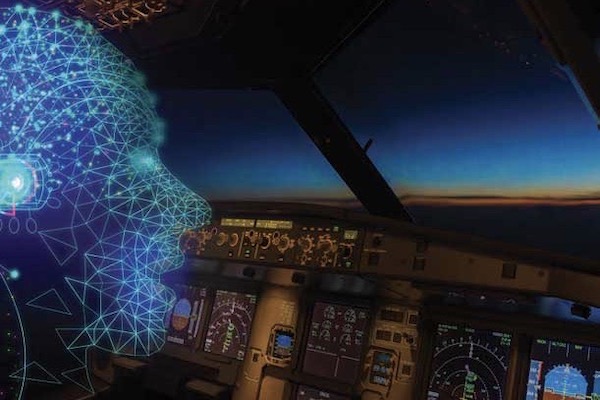Published on the 27/09/2023 | Written by Heather Wright

NAB, BNZ, Suncorp, Genesis, and more put Microsoft in the Copilot’s seat…
Big name local companies including NAB, BNZ, Suncorp, Genesis Energy, Bupa and Beca are among those trialling Microsoft’s AI assistant Copilot as part of an invitation-only early access program.
Announced back in March, Microsoft 365 (M365) Copilot, which comprises the power of a large language model, working in tandem with Microsoft 365 apps and the Microsoft Graph, will add generative AI directly into the vendor’s productivity suite.
“What excites me the most is the impact it could have helping our employees deliver exceptional customer experiences with greater ease.”
Users will be able to ask questions and receive responses based on emails, meetings, chats, documents and other content within Microsoft’s apps, including Outlook, Teams and Excel.
Last week the tech giant, which has been pushing hard on the generative AI front including investments in ChatGPT developer OpenAI, announced a ‘unified’ AI for its Windows 11 platform. It is rolling out with the latest changes to Windows 11 and will also be available in M365 Copilot when it becomes commercially available in November.
Tens of thousands of enterprise users around the world have already been using Copilot thanks to the Early Access Program.
Microsoft says AGL, Data#3, Bupa, NAB, Powerlink Queensland, Rest Super and Suncorp are among the first organisations in Australia to deploy M365 Copilot via the program, while in New Zealand BNZ, Beca and Genesis Energy have been named as three of ‘a handful’ of Kiwi organisations selected to pilot the technology. Globally, companies including Visa, General Motors and KPMG are among the Early Access Program users.
Microsoft has been rapidly embedding generative AI in its suite of products, helped by its US$13 billion investment in OpenAI, a company it first invested in back in 2019, to the tune of US$1 billion.
Earlier this year it announced Copilot offerings across Dynamics 365 Finance, Project Operations and Supply Chain Management.
Bing Chat Enterprise – dubbed AI-powered chat for work with commercial data protection – was announced in July. Microsoft says with Bing Chat Enterprise, user and business data are protected and won’t leak outside an organisation – a key concern for many enterprises scared their valuable data – including private customer data – could be leaked through training them on the data, enabling people outside the organisation to interrogate them and find that information.
But while there’s been plenty of talk about Copilot and Microsoft’s other generative AI products, actually getting your hands on the products as a business is harder – thanks in part to the need for guardrails before the tools are made widely available to enterprises.
M365 Copilot, which will cost US$30 per user per month, will launch in November. (Companies will also need to pay for the Microsoft apps, alongside Copilot.) Bing Chat Enterprise will also be available to customers through Copilot in November.
Microsoft CEO Satya Nadella has said the company wants to provide an everyday AI companion, unifying the AI experience into a single tool, following users across apps and devices and taking context from everywhere.
As its name suggests, however, Copilot isn’t going to completely take the reins, with Microsoft executives repeatedly saying generative AI tools are simply tools – a copilot to assist users, with humans still required to vet Copilot’s outputs.
“Copilot is one experience that runs across multiple surfaces, understands your context, brings the right skills to you when you need them, it adapts to you, you no longer have to be the orchestrator of your apps, operating systems and devices,” Nadella said last week, of Microsoft’s lofty plans for the offering.
“We are building Copilot into all of our most used products and services and allowing you to summon its power as a stand alone app as well.”
The local view
Recent figures from Gartner show 66 percent of Australian and New Zealand companies are planning to increase their spend on AI in 2024.
Lucy Debono, Microsoft Australia and New Zealand Modern Work Business Group director, says she sees the opportunity for financial services organisations to benefit from speeding up content creation for things like customer communication and reports, which could free up teams to spend more time on higher value customer support and service delivery.
That’s a common theme across companies eyeing up generative AI.
Early Access Program participant Bupa says it’s exploring ways that AI and other technologies can help its team by giving them back time to focus on what matters most – customers.
Suncorp too is focusing its M365 Copilot trial on how to save time for its teams and improve how they serve customers.
“As an insurer, we are investigating many use cases, including how we help our customer-facing teams deliver exceptional service, including during the claims process,” Craig Price, Suncorp head of data science, AI and insights, says.
“We see a great opportunity to improve how our people access relevant content, such as our insurance product disclosure statements in a more intuitive way so they can support customers quickly when they need us most.”
In New Zealand, BNZ executive of data analytics and strategy, Kate Skinner, says the bank is looking for new ways to deliver market leading products, services and expertise to customers.
“[Generative AI] offers immense potential to increase productivity, but what excites me the most is the impact it could have for our employees in helping them to deliver exceptional customer experiences with greater ease.
Over at Genesis Energy, simplification is the name of the game.
Ed Hyde, Genesis chief transformation and technology officer, says Genesis operates in a complex sector, undergoing massive transformation.
“We see an opportunity for AI productivity tools like M365 Copilot to help our team simplify their workload so they can focus their creativity and energy on more productive tasks,” Hyde says.
“For example, the technology provides excellent summaries and outlines of meetings and interactions between staff members, improving communication, collaboration and efficiency of workflow.”
Hyde says Genesis’ team found unexpected ways to use Copilot, including in design workshop activities, with team members reporting it gave them more ‘strategic thinking time’, while reducing the pressure and stress of undertaking more mundane tasks.
“The tools complement our existing skills and knowledge,” Hyde says, adding that he see the program as a springboard for Genesis’ broader AI transformation.
Australian energy company AGL says it’s initial focus is on users who are heavy content producers or leaders who have weeks filled with back-to-back and conflicting meetings.
The company has embraced flexible work models in recent years, however, Grace Russo, AGL head of employee technology, says that’s meant employees are spending more time managing chats, emails and meetings in order to stay connected.
“We are excited by Microsoft 365 Copilot and the huge potential it offers in helping our employees to be more efficient, productive and liberate them from the mundane to focus on higher-value tasks,” Russo says.
Powerlink, another Australian energy early adopter program member, says its first teams using M365 Copilot are already reporting saving at least an hour a day on being able to manage documentation, Teams chats and emails more efficiently.



























